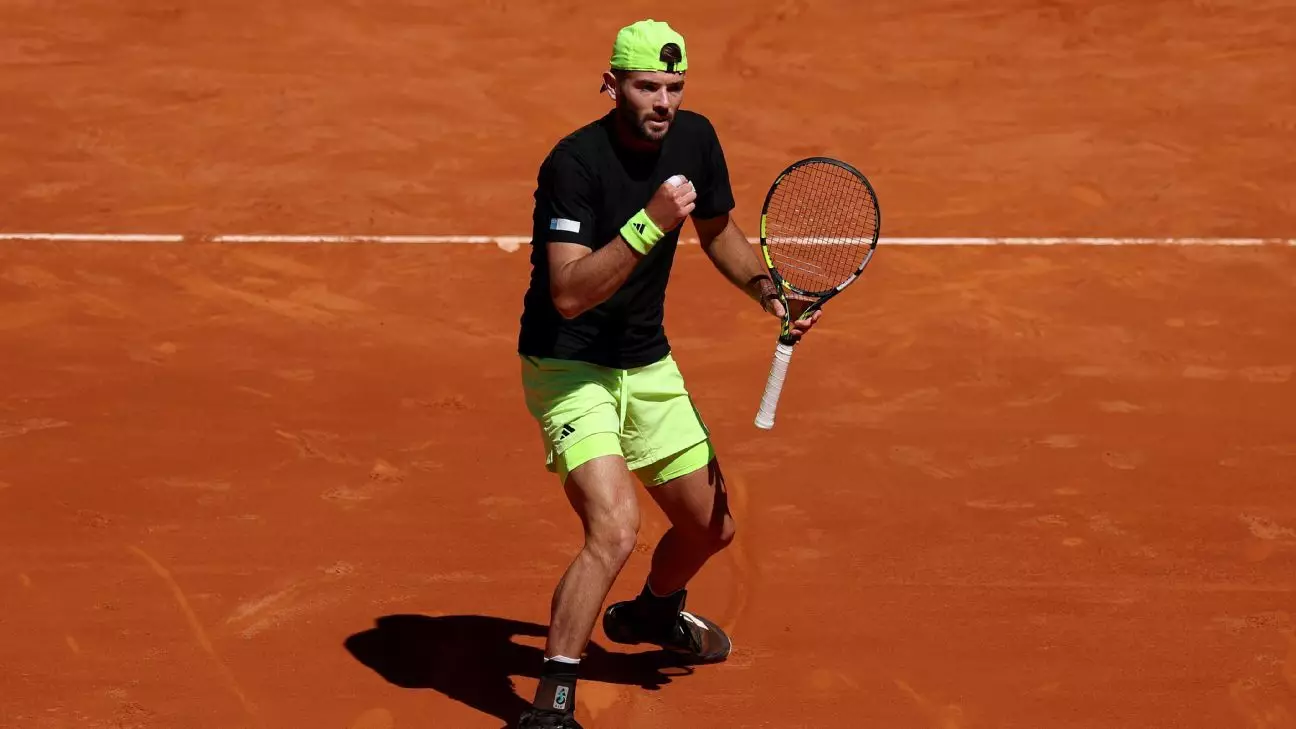Power Outage Disrupts Madrid Open: Chaos and Resilience on the Court
Imagine being in the middle of one of the biggest tennis tournaments in the world, surrounded by the electric buzz of a cheering crowd, only for everything to suddenly plunge into darkness. That’s exactly what happened at the Madrid Open this year. On a seemingly ordinary Monday afternoon, a significant power outage left both players and spectators in complete disarray. As I sat there among fellow tennis enthusiasts, the shared confusion was palpable, highlighting just how dependent we are on technology even in such traditional sporting events.
The power cut didn’t just disrupt matches; it threw a wrench into the entire day’s schedule. With two singles matches and a doubles match abruptly halted, the atmosphere was filled with uncertainty. Players like Grigor Dimitrov and Matteo Arnaldi, who were leading their respective games, were suddenly left hanging. It’s moments like these that remind us how fragile these meticulously planned events can be when reliant on modern technology. The spider cam, meant to capture every thrilling moment from above, now hung uselessly over a dimly lit court—a stark reminder of our vulnerability to technological failures.
Key Takeaways
- The power outage at the Madrid Open highlights the fragility of modern sporting events.
- Players and fans showed resilience amidst chaos, maintaining their spirits.
- The incident raises questions about infrastructure reliability in major competitions.
Players and Fans: Responding with Poise Amidst Chaos
Despite the sudden halt in play, neither players nor fans let their spirits wane. In fact, some athletes took this unexpected break as an opportunity to practice or interact with their fans. This resilience underlines the passion that fuels tennis beyond just competitive play. Watching from the stands, I couldn’t help but admire those who lingered around, perhaps hoping for a swift resolution or just soaking in this once-in-a-lifetime experience. It’s moments like these that showcase not just athletic skill but human tenacity in its rawest form.

One standout moment came from Coco Gauff, who had just wrapped up a victory against Belinda Bencic before everything went dark. She humorously documented her experiences on social media—attempting to shower without power—capturing the surreal yet light-hearted nature of the situation. Her post resonated with many, showing that even amidst chaos, there is room for camaraderie and humor. It’s refreshing reminders like these that highlight how sports bring people together under even the strangest circumstances.
A Temporary Setback for the Stars
The anticipation for Iga Swiatek’s match against Diana Shnaider was palpable among fans and players alike. Yet, as they waited in dim lounges with their teams, it became clear just how taxing such disruptions can be. Even elite athletes are not immune to the emotional toll that uncertainty brings. Watching them navigate this waiting game reinforced an essential lesson: adaptability is key. Sports aren’t just about physical prowess; they’re about mental fortitude too.
Meanwhile, behind the scenes, there was a flurry of activity as Spanish generator company RedEléctrica worked tirelessly to resolve the issue. Reports indicated that this wasn’t an isolated incident but rather part of a broader outage affecting parts of Spain and Portugal. With so many lives disrupted across the Iberian Peninsula, it raises pressing questions about reliability and preparedness for such large-scale events. Perhaps it’s time for organizers to seriously consider more robust backup systems to ensure continuity even when unforeseen challenges arise.
Final Thoughts
This power outage at the Madrid Open has become more than just a temporary inconvenience; it’s a narrative about resilience and adaptability in sport. It serves as a powerful reminder that while technology enhances our experiences, it’s our ability to handle unpredictability that truly defines us—both as athletes and spectators. As you reflect on this year’s tournament, remember that every challenge faced is an opportunity to showcase not just skill but also character. Whether you’re on or off the court, embracing these moments can turn adversity into triumph.
Madrid Open Power Outage Tennis Resilience Sports Technology


Leave a Reply